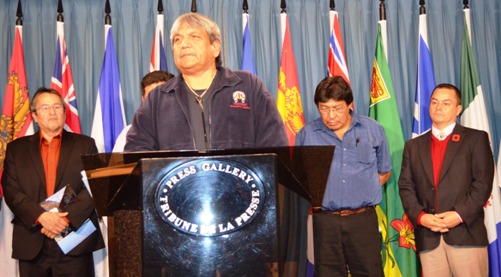The Vancouver Sun, a broadsheet daily paper first published in 1912, has the largest circulation in the province of British Columbia.
First nations students are attending — and graduating from — post-secondary schools and professional programs like law and medicine in record numbers
Mary Brearly had no idea as a little girl that she would grow up to be an underground miner. “I didn’t know that I could do that, I guess. Nobody had told me,” said the first nations Thompson Rivers University graduate, who earned her processing operations qualifications through the B.C. Aboriginal Mine Training Association in Kamloops last year.
Brearly, 27, is part of what the B.C. Ministry of Advanced Education says has been a 25-per-cent surge in post-secondary enrolment among aboriginal youth over the last four years. Statistics from some colleges and universities in B.C. also show that more aboriginal students are completing certificate and degree programs in a broader range of fields.
“Ensuring that aboriginal learners have access to post-secondary education and training is essential to fulfilling our labour needs,” said Naomi Yamamoto, the minister of advanced education.
























